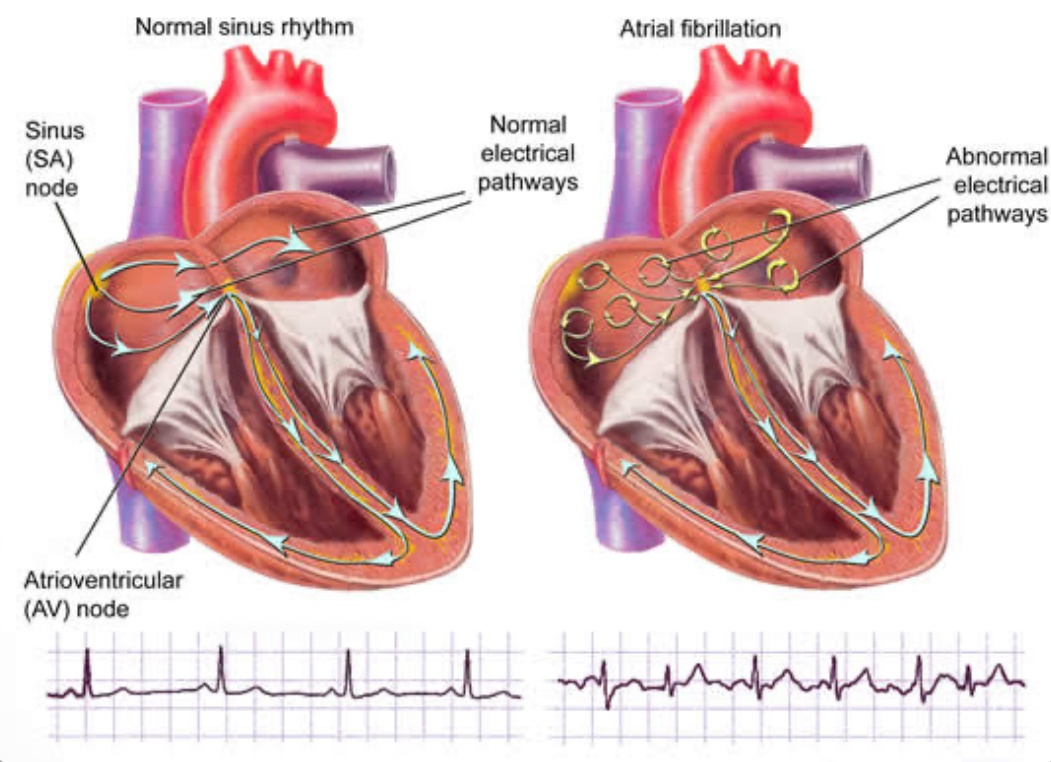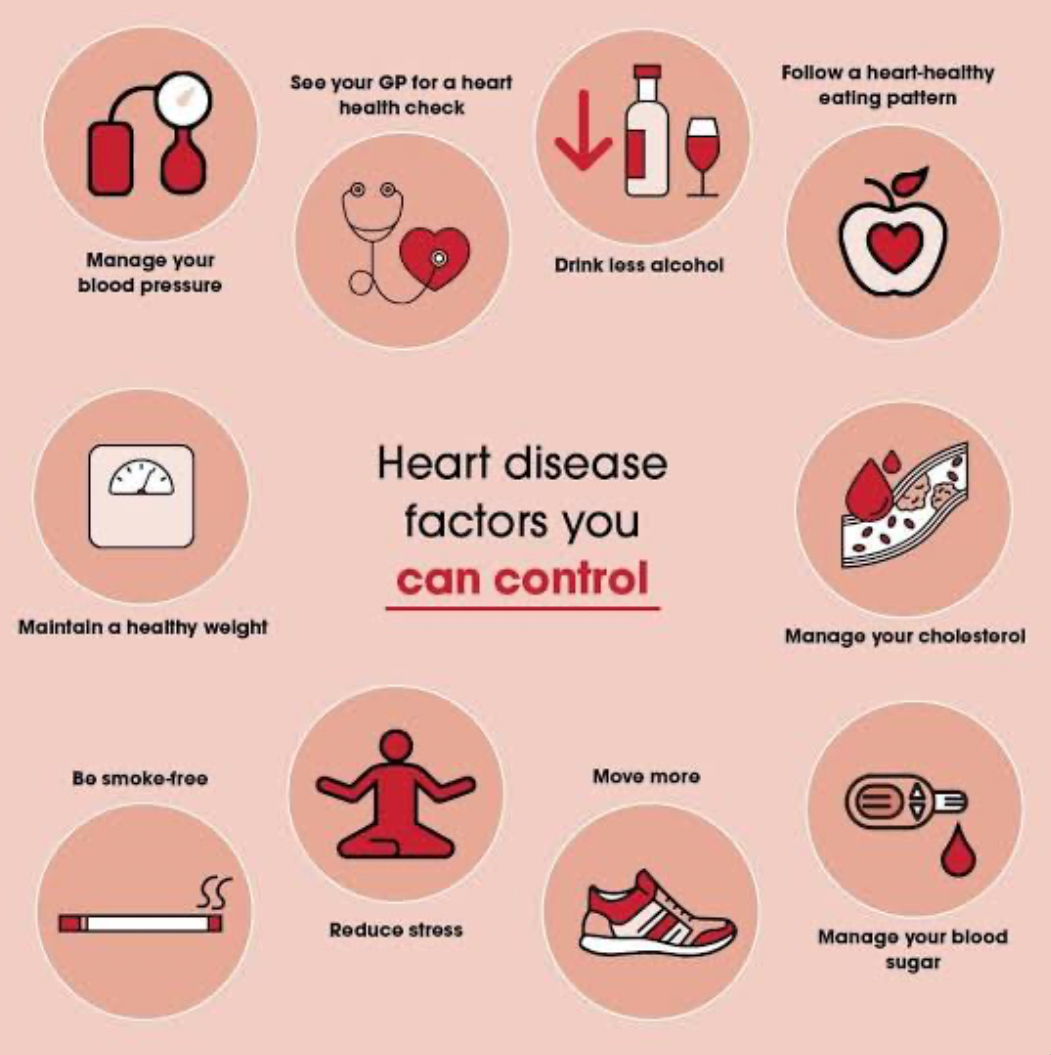There is some good news for people who are more likely to have problems with abnormal heartbeats, especially atrial fibrillation (AFib). Researchers have released a new AI model that can predict irregular heartbeats up to 30 minutes in advance. Warning of Atrial Fibrillation (WARN) is a brand-new invention that could totally change how people avoid heart disease and give them more control over their health.

Understanding Atrial Fibrillation: A Problem with the Heart's Beat
Most people who have a problem with their heart rate have AFib. It causes the heart to beat faster or slower. The top parts of a healthy heart, called atria, squeeze together. This sends electrical signals to the lower sections, known as ventricles, in order to move blood. AFib disrupts these signals, causing the atria to oscillate instead of closing properly. That makes it tougher for the heart to do its job, which can lead to a number of health issues.

- Stroke: AFib greatly raises the chance of having a stroke because blood clots can form in the atria, where blood is sitting still, and move to the brain.
- Heart Problems: AFib's uneven heartbeats can weaken the heart muscle over time, leading to heart failure.
- Getting less smart: Studies show a connection between AFib and memory loss, which can lead to dementia.
Dawn from WARN is a deep-learning genius
Researchers from the University of Luxembourg developed WARN using deep learning, a more advanced type of machine learning program. Deep learning is very good at finding trends in large datasets. At Wuhan, China's Tongji Hospital, we carefully trained WARN using heart rate data from 350 patients over the course of 24 hours. WARN carefully studied these data and learned to tell the difference between three phases: normal sinus rhythm, pre-AFib, and full-blown AFib.

With this new information, WARN can figure out a "probability of danger," which is a fancy way of saying that it's likely that an AFib event will happen soon. When this chance goes above a certain level, WARN sends out an early warning, giving patients a valuable 30 minutes to take action before it's too late.
Giving Patients Power: Preventative Steps for a Stable Heartbeat
Combining WARN with wearable technology, such as smartwatches, opens up exciting prospects for the future. Imagine a smartwatch that collected heart rate data without any problems, sent it to WARN's AI engine, and then quietly warned the user of an impending AFib episode. With this helpful information, patients can do the following:

- Seek emergency help right away: A medical worker can prevent serious problems by acting quickly.
- Make changes to your habits: Certain objects or actions can trigger AFib episodes. If they receive a warning in time, they can alter their behaviour.
- How to give medication: A doctor can prescribe certain medications to prevent or lessen the effects of an AFib attack.
Beyond WARN: How AI is Changing Healthcare in More Ways
WARN's work demonstrates how AI has the potential to completely change healthcare. Here are some other places where AI is making big steps forward:

- Improved Medical Imaging and Testing: Radiologists can now look at medical scans with a lot more clarity, thanks to AI algorithms. This helps them make diagnoses faster and more accurately.
- Changing the way drugs are found: AI is speeding up the process of finding new drugs by looking at huge amounts of data to find possible drug options and guess how well and safely they will work.
- Customised health care: AI algorithms are making it possible to make personalised treatment plans that take into account each patient's genes, medical background, and way of life.
- Analytics for Prediction: AI can look at patient data to identify trends and risk factors linked to different diseases. This lets doctors start treating people early and might even stop them from getting sick in the first place.
The Way Ahead: Ethical Considerations and What Will Happen Next
Even though WARN is a big step forward, the road isn't over yet. We need to carefully consider ethical issues when it comes to data protection and security. Large-scale clinical studies should test WARN to ensure its effectiveness and safety for a diverse patient population.
In the future, researchers hope to make WARN even better, which could help them identify a wider range of heart rhythm problems. Adding AI to implantable devices also shows a lot of promise for personalised tracking and intervention in real time.

The future will be better for heart health
The fight against heart arrhythmias has taken a big step forward with the release of WARN. This amazing piece of AI provides patients with the information and foresight they need to manage their heart health. As the study continues to grow and AI continues to improve, we can look forward to a time when cardiac care is more proactive, personalised, and successful, making everyone healthier and happier.
Image Source: Multiple Agencies
Inputs from Agencies
© Copyright 2024. All Rights Reserved Powered by Vygr Media.


















